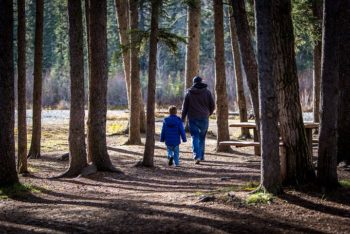Camping Adventures for ALL Kids
 Camping Adventures for ALL Children
Camping Adventures for ALL Children
Just like the beach in California, when we moved to Colorado, the mountains became a playground. Camping looks easy right????? Not when you really think about it. And I know here in Colorado it has become an activity where you must plan your location months in advance.
Camping is a wonderful way for families to connect with nature, bond with each other, and create lasting memories. For parents of children with special needs, planning a camping trip may require some additional considerations and preparation. Here are 8 things you need to keep in mind as you plan your next adventure.
Choose the Right Destination:
Selecting the right camping destination is crucial when traveling with special education children. Consider factors such as accessibility, amenities, and proximity to medical facilities. Look for campgrounds that offer accessible trails, wheelchair-friendly facilities, and accommodations for sensory needs. National parks often provide accessible camping options and resources for families with special needs. As a child we always stayed at National Park but my nephews shared they have stayed at a couple Hipcamp sites that were just as cool. Google to see what’s in your area. It might take some time to find a place to try or to find somewhere new that becomes a family favorite. Always remember to start small like close to home or just one night somewhere or even a day trip.
Plan Ahead:
Planning is key to a successful camping trip, especially when traveling with special education children. Create a detailed itinerary that includes activities, meal plans, and any necessary accommodations. Pack essential supplies such as medications, sensory items, and adaptive equipment. Consider creating a visual schedule or social story to help prepare your child for the camping experience. The National Park Service (NPS) is always a great place to start. In my travels, my family has found NPS to have great accessibility and great easy options for first time campers. Check out their website to find out what parks are near you.
Prepare for Sensory Needs:
Outdoor environments can be overwhelming for children with sensory sensitivities. Bring along familiar comfort items such as weighted blankets, noise-canceling headphones, or fidget toys to help your child feel calm and secure. Create sensory-friendly spaces within your campsite where your child can retreat if they become overwhelmed. Allow plenty of time for sensory breaks and outdoor exploration at their own pace.
Practice Camping Skills:
Before embarking on your camping adventure, take time to practice essential camping skills with your child. Set up a backyard tent or have a backyard camping night to familiarize your child with the camping experience. Teach basic camping skills such as setting up a tent, building a campfire, and cooking outdoors. Practice safety procedures and discuss what to do in case of emergencies.
Embrace Nature-Based Learning:
Camping provides a unique opportunity for children to learn and explore the natural world. Encourage your child to engage in nature-based activities such as hiking, birdwatching, and identifying local flora and fauna. Use nature as a classroom to teach lessons about ecology, conservation, and outdoor survival skills. Encourage sensory exploration by touching tree bark, listening to bird songs, and smelling wildflowers. This also means teaching children how to interact with wild animals like deer, elk, moose, snakes, and buffalo. Everyone needs to know; you don’t need to take that selfie with the moose. LOOK DON’T Touch! Don’t forget to hit up the Rangers–they know everything.
Foster Independence:
Allow your child to take an active role in the camping experience and foster independence. Assign age-appropriate tasks such as gathering firewood, setting up camp, or preparing meals. Encourage your child to problem-solve and make decisions independently, empowering them to take ownership of their camping experience. Provide praise and positive reinforcement for their efforts and accomplishments. It’s a good idea to make sure they understand the importance of remaining on the trail and what to do if they get lost. (I clearly remember being lectured as a small girl to “sit my butt down and don’t move” if I ever lost the trail.) Remember safety is always first.
Be Flexible and Patient:
Flexibility is essential when camping with special education children. Be prepared to adapt your plans and expectations based on your child’s needs and abilities. Allow for plenty of downtime and unstructured play to reduce stress and sensory overload. Practice patience and understanding and be prepared to provide extra support and reassurance as needed.
Connect with Other Families:
Consider connecting with other families who have special education children and share similar interests in camping and outdoor activities. Join online forums, social media groups, or local support networks to exchange tips, resources, and advice. Organize group camping trips or meetups where families can share experiences, support each other, and create a sense of community.
Camping with special education children can be a rewarding and enriching experience for the entire family. By planning, preparing for sensory needs, and fostering independence, you can create a successful outdoor adventure that allows your child to connect with nature, build life skills, and make cherished memories. Remember to embrace flexibility, patience, and a spirit of adventure as you embark on your camping journey together. With careful preparation and a sense of adventure, you can create unforgettable camping memories that will last a lifetime.